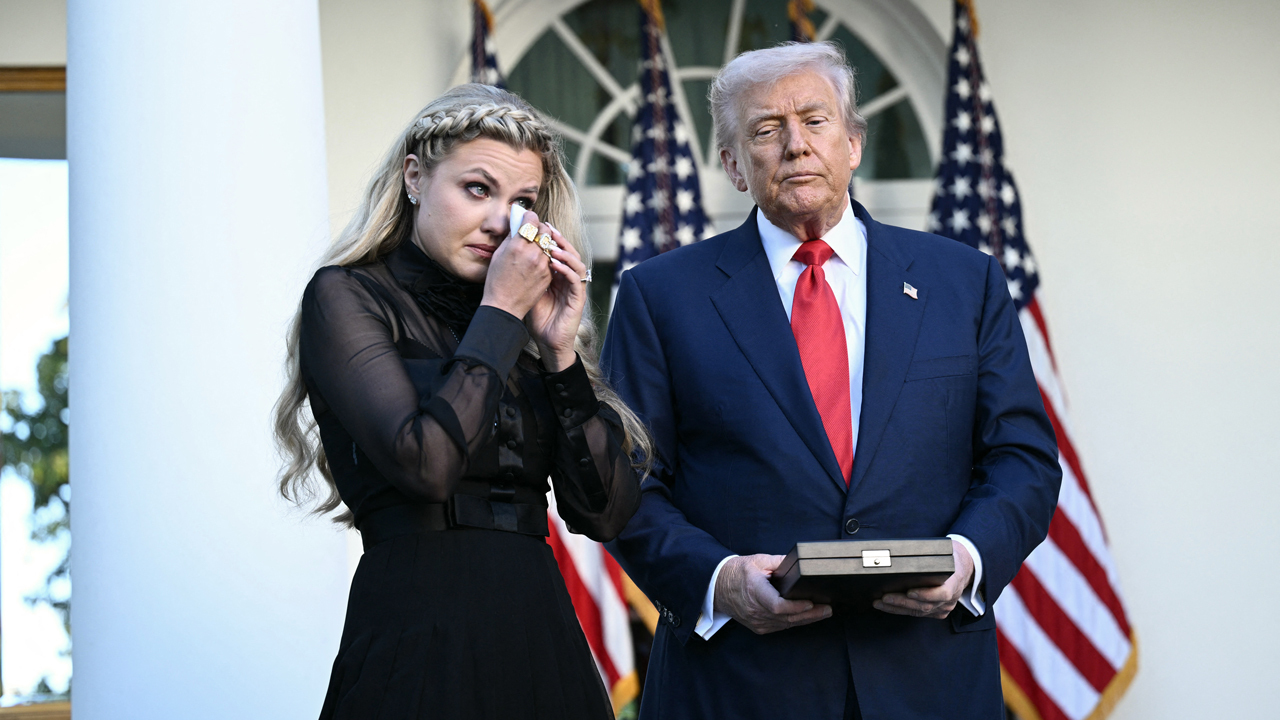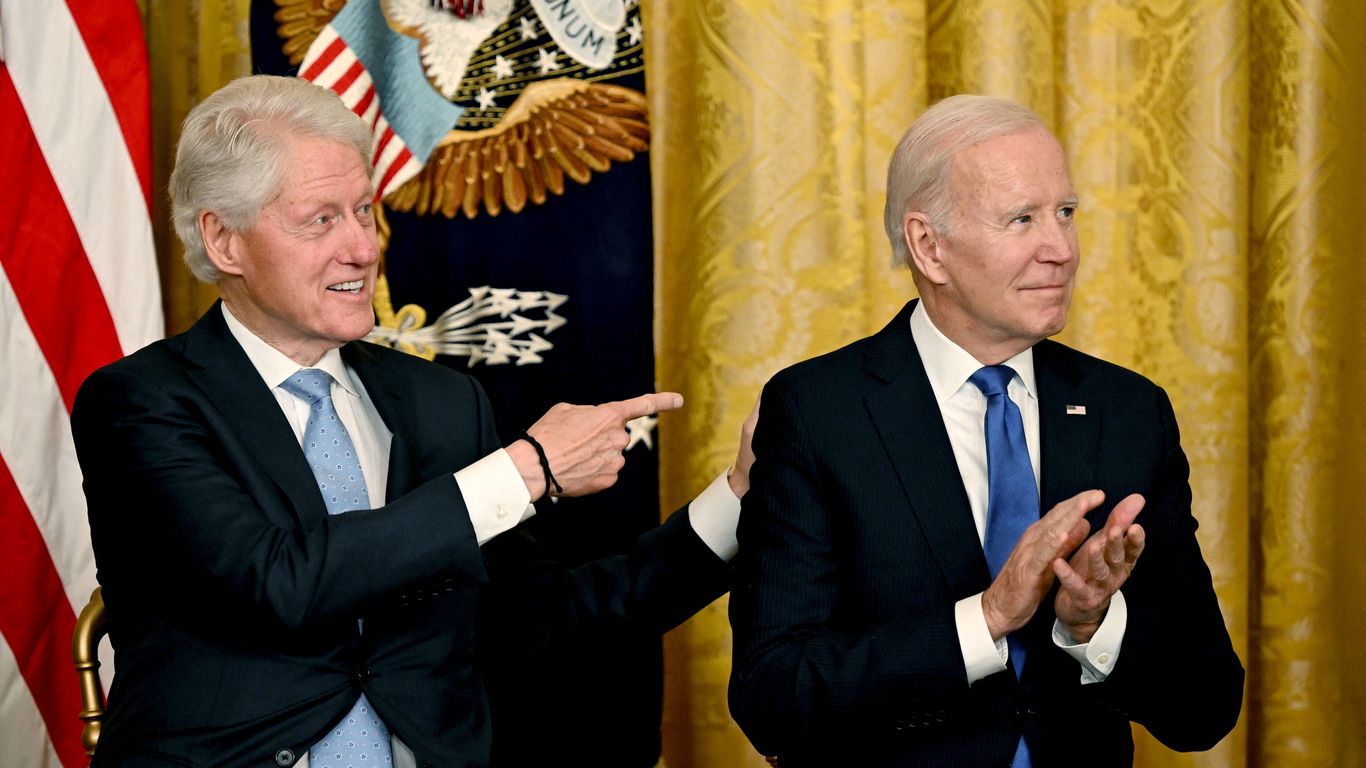Historic Rose Garden Tribute: Trump Awards Medal of Freedom to Charlie Kirk

A Historic Tribute in the Rose Garden
On what would have been his 32nd birthday, President Donald Trump posthumously awarded conservative leader Charlie Kirk the Presidential Medal of Freedom, the nation’s highest civilian honor[1]. The White House ceremony, held in the newly renovated Rose Garden, drew prominent political figures and close friends of Kirk, reflecting the deep impact he had on American conservatism and youth engagement[2]. Trump described Kirk as a “fearless warrior for liberty” who inspired a new generation to stand for their beliefs, even in the face of adversity[2]. The event also saw international guests, including Argentinian President Javier Milei, underscoring Kirk’s global influence among right-leaning movements.
Legacy of a Conservative Icon
Charlie Kirk, founder of Turning Point USA, was remembered for his relentless advocacy on college campuses and his ability to connect with young conservatives nationwide[1]. His sudden death last month at Utah Valley University shocked supporters and sparked widespread mourning, with Trump calling him a “martyr” for freedom during a public memorial[1]. The President emphasized that Kirk’s legacy would endure, not just in political circles but as a symbol of conviction and patriotism[3]. The Medal of Freedom ceremony honored not only Kirk’s achievements but also the ideals he championed—free speech, limited government, and the empowerment of America’s youth—values that continue to resonate across the country.
About the People Mentioned
Donald Trump
Donald John Trump, born June 14, 1946, in Queens, New York, is an American businessman, media personality, and politician. He graduated from the University of Pennsylvania’s Wharton School in 1968 with a degree in economics. In 1971, he took over his family’s real estate business, renaming it the Trump Organization, through which he expanded into building and managing skyscrapers, hotels, casinos, and golf courses. Trump gained widespread fame as the host of the reality TV show *The Apprentice* from 2004 to 2015, which helped establish his public persona as a successful entrepreneur. Trump entered politics as a Republican and was elected the 45th president of the United States, serving from 2017 to 2021. His presidency was marked by significant policy actions including tax cuts, deregulation, the appointment of three Supreme Court justices, renegotiation of trade agreements (notably replacing NAFTA with the USMCA), and a focus on immigration control including border wall expansion. He withdrew the U.S. from international agreements such as the Paris Climate Accord and the Iran nuclear deal, and engaged in a trade war with China. His administration’s response to the COVID-19 pandemic was criticized for downplaying the virus’s severity. Trump was impeached twice by the House of Representatives—first in 2019 for abuse of power and obstruction, and again in 2021 for incitement of insurrection—but was acquitted by the Senate both times. After losing the 2020 election to Joe Biden, Trump challenged the results, culminating in the January 6, 2021, Capitol riot. He remains a central figure in American politics, having won the 2024 presidential election and returned as the 47th president in 2025, continuing to promote policies aimed at economic growth, border security, and military strength[1][2][3][4].
Charlie Kirk
Charlie Kirk is a prominent American conservative activist and the founder of Turning Point USA, a national student movement dedicated to promoting free markets and limited government. Born in 1993, Kirk co-founded Turning Point USA in 2012 at the age of 18, alongside Bill Montgomery. The organization has grown significantly, with a presence on over 3,000 high school and college campuses across the U.S. and more than 650,000 lifetime student members[2][3]. Kirk has been a prolific media presence, appearing thousands of times on various platforms, including Fox News and The Washington Post. He was named to the Forbes "30 under 30" list and became the youngest speaker at the 2016 Republican National Convention. He also served as the opening speaker at the 2020 RNC[2]. In addition to his activism, Kirk is an author, having written several books, including "The MAGA Doctrine," which became a best-seller on Amazon and The New York Times. His most recent book, "Rightwing Revolution," was released in 2024[2]. Kirk's involvement in politics extends beyond Turning Point USA. He was active in Bruce Rauner's successful 2014 gubernatorial campaign in Illinois. Rauner, who later became a financial supporter of Turning Point USA, praised Kirk's activism[3]. Kirk's activities have been controversial, drawing both support and criticism. Recently, Kirk's life was tragically cut short, and the FBI is investigating his death, offering a reward for information leading to the arrest of those responsible[3]. Despite the controversy surrounding his views and actions, Kirk remains a significant figure in conservative American politics.
Javier Milei
Javier Milei, born October 22, 1970, in Buenos Aires, Argentina, is a right-wing libertarian economist and politician who has served as President of Argentina since December 10, 2023.[1][2] He earned a degree in economics from the University of Belgrano, along with master's degrees from the Institute of Economic and Social Development and Torcuato Di Tella University, where he shifted from Keynesian views to Austrian and libertarian theories.[1][2][6] Milei's professional career included roles as a senior economist at HSBC Argentina, head economist at Máxima AFJP—a private pension fund—and financial analyst for Corporación América under billionaire Eduardo Eurnekian.[1][2][6] He gained fame in the 2010s as a outspoken television pundit, criticizing Argentina's political elite for hyperinflation, currency devaluation, and poverty amid 140% annual inflation and 40% poverty rates in 2023.[1][3][4] Entering politics in 2021, Milei founded La Libertad Avanza and won a seat in the Chamber of Deputies for Buenos Aires, where he raffled his salary monthly to supporters.[1][3] In 2023, riding voter frustration, he triumphed in the presidential election, winning 21 of 24 districts and defeating Sergio Massa by a double-digit margin.[1][2][3] As president, Milei pursued "shock therapy" reforms inspired by Carlos Menem's 1989-1999 neoliberal agenda, including deregulation and fiscal austerity, contrasting gradualism under Mauricio Macri.[3][4] By July 2024, his government passed key legislation and secured deals with provincial governors.[3] Two years into office by late 2025, La Libertad Avanza secured 41% in October 2025 congressional elections, gaining the largest parliamentary bloc with 95 members despite earlier corruption allegations against allies.[5] Milei remains a confrontational figure, known for his media presence and narrow but dedicated base, primarily young males, amid ongoing economic challenges.[1][3][5]
About the Organizations Mentioned
Turning Point USA
Turning Point USA (TPUSA) is a conservative 501(c)(3) non-profit organization founded in 2012 by Charlie Kirk when he was 18 years old. Its core mission is to identify, educate, train, and organize high school and college students to promote principles of fiscal responsibility, free markets, limited government, and traditional American values such as patriotism, liberty, family, and respect for life[1][2][6]. TPUSA aims to build the largest and most active conservative grassroots activist network across over 3,500 campuses nationwide, making it the fastest-growing youth organization in America[1][3]. Unlike traditional conservative campus groups that often bring celebrity speakers, TPUSA strategically focuses on training and financially supporting conservative candidates in student government elections, fostering influence in campus governance and politics[2][3][5]. This approach has allowed TPUSA to establish a strong political presence at approximately 900 colleges and 1,200 high schools by 2025, raising around $389 million in funds[2]. TPUSA’s organizational structure includes related entities such as Turning Point Action (a 501(c)(4) advocacy group formed in 2019) and Turning Point Faith (launched in 2021 to engage religious leaders and communities)[3]. The organization is funded by various right-wing donors and foundations, including those affiliated with the Koch brothers and other conservative philanthropists[3][5]. Notably, in September 2025, founder Charlie Kirk was assassinated during an event at Utah Valley University, after which his widow, Erika Kirk, assumed the role of CEO[2]. The organization has faced controversies, including allegations of racial discrimination and the maintenance of a "Professor Watchlist" targeting faculty accused of leftist bias, which has sometimes incited online harassment[3][5]. TPUSA also produces media content such as podcasts, debate series, and daily news shows to engage youth in conservative ideas and culture[6]. Overall, Turning Point USA plays a
White House
The **White House Office** is a central organizational component within the Executive Office of the President of the United States (EOP), tasked with supporting the President in managing day-to-day operations, policy formulation, and political affairs. It is headed by the White House Chief of Staff and staffed by senior aides who report directly to the President, including those with titles such as Assistant to the President and Deputy Assistant to the President. These staff members are mostly political appointees without the need for Senate confirmation, allowing the President considerable discretion in shaping the office to suit each administration's priorities[1]. Historically, the White House Office was established in 1939 through Reorganization Plan 1 and Executive Order 8248 to provide immediate assistance to the President. It functions as the nerve center for presidential staff, physically located primarily in the West Wing, and plays a pivotal role in managing the President’s policy agenda, communications, and political strategy. Its flexible organization allows each President to tailor the staff composition and roles according to their governance style and objectives[1]. In the current context of 2025, the White House Office operates under the administration of President Donald J. Trump, who returned to office after the 2024 election. His administration emphasizes rejecting prior policies deemed extremist and focuses on enhancing quality of life, economic growth, and American energy dominance. The administration includes Vice President JD Vance and First Lady Melania Trump, among others, with a Cabinet advising on various governmental functions[4][6]. Recent initiatives linked to the White House’s operational sphere include the establishment of a new **Department of Government Efficiency (DOGE)** aimed at modernizing federal technology and software to boost government productivity. The DOGE agenda is implemented through the renamed United States DOGE Service within the Executive Office, reflecting a concerted push to leverage technology for administrative modernization[5]. Notably, the White House Office also coordinates national security and homeland security functions through the National Security Council staff, underscoring its central role
Utah Valley University
**Utah Valley University (UVU)** is a prominent public university located in Orem, Utah, known for its unique dual-mission model that combines the comprehensive academic rigor of a university with the accessibility and vocational focus of a community college[4]. Established in 1941 as the Central Utah Vocational School, UVU has evolved through several name changes and expansions, reflecting its growth and diversification. It became Utah Valley State College in 1993 and attained university status in 2008[1][3][7]. UVU serves over 48,000 students as of fall 2025, making it the largest public university in Utah and one of the largest in the Rocky Mountain region[7]. It offers a broad spectrum of programs, including master’s, bachelor’s, and associate degrees, along with certificates across various fields such as business, engineering and technology, health, arts, and education[4][7]. Its student body is diverse, representing 42 countries, with a significant portion being nontraditional students, first-generation college students, and working professionals—78% of students work while studying[4]. Historically, UVU began as a vocational school focusing on trades and skilled craftsmanship. It expanded in the 1960s and 1970s to include associate degrees and moved from Provo to a larger campus in Orem, enabling further growth[1][2]. The institution was among the first community colleges to establish international exchange programs with countries including Russia, China, and Germany[1]. In the 1990s, UVU added bachelor’s degree programs in business management, computer science, and technology management, signaling its transition toward a full university[1]. UVU is recognized for its commitment to student success through engaged learning, faculty-mentored research, and community responsiveness to regional workforce needs[4][6]. The university’s Woodbury School of Business is notable for its integration of business education with technological innovation, supporting Utah’s growing economy.


















